A crypto address acts as your unique identifier for sending and receiving digital assets. It links to a public and private key, with the public key shared freely, while the private key remains secret. For example, a Bitcoin address may start with '1' or 'bc1' and typically contains 26-35 characters. When you create a transaction, you sign it with your private key, and it gets validated on the blockchain. Each address is essential to avoid errors during transactions. If you keep exploring, you'll uncover more about the different types of addresses and their significance in maintaining security.
Key Takeaways
- Crypto addresses are unique identifiers for sending and receiving digital assets, linked to a public and a private key.
- Bitcoin addresses start with '1', '3', or 'bc1', while Ethereum addresses begin with '0x', consisting of 42 characters.
- Transactions are created by signing them with a private key and validated by broadcasting to the blockchain network.
- Address formats vary by cryptocurrency, making it crucial to use the correct format to avoid transfer errors.
- Security of private keys is essential, as compromised keys can lead to the loss of cryptocurrencies.
Address Format and Structure
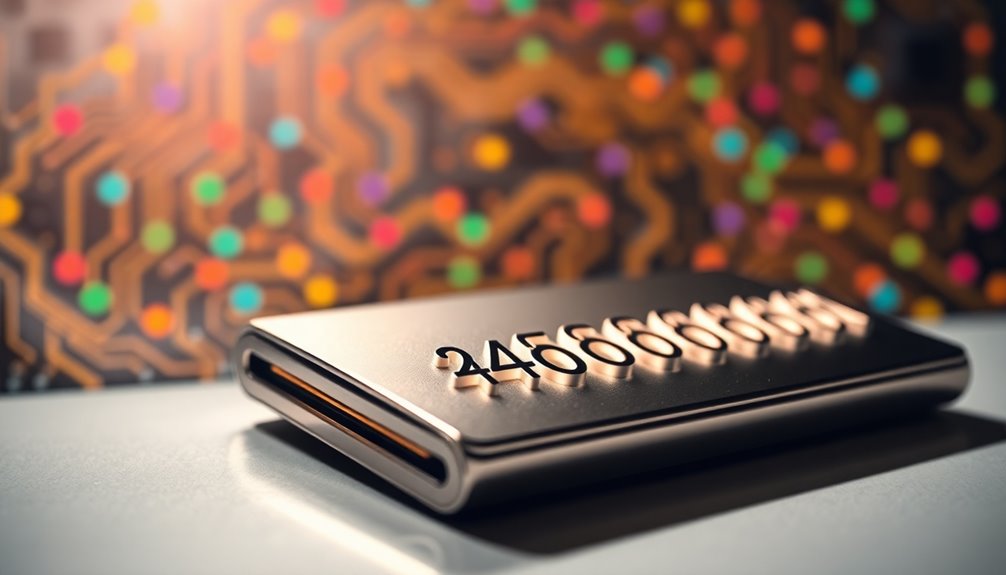
When you plunge into the world of cryptocurrencies, understanding the address format and structure is vital, as it directly impacts how you send and receive digital assets. Each cryptocurrency has a distinct address format.
For Bitcoin, addresses start with '1', '3', or 'bc1' and range from 26 to 35 characters. Ethereum addresses begin with '0x' and consist of 42 hexadecimal characters. Additionally, new public codes are generated for each transaction to enhance security and protect your assets. Understanding these unique address formats can help prevent potential market manipulation when sending funds.
Litecoin follows a similar structure to Bitcoin but starts with 'L' or 'M'. Ripple addresses begin with 'r' or 'X', while Monero addresses always start with '4' and are 95 characters long.
Each address type includes a checksum to guarantee data integrity, so you can confidently manage your transactions without errors.
Overview of Crypto Addresses

Crypto addresses play an essential role in the cryptocurrency ecosystem, acting as unique identifiers for transactions. They direct where cryptocurrency is sent or received, ensuring anonymity since they don't contain personal information.
Each address links to a public key, which you can share, and a private key, which you must keep secret to protect your funds. Generated through cryptographic algorithms, these addresses come in various formats depending on the cryptocurrency—Bitcoin addresses often start with "1" or "3," while Ethereum addresses begin with "0x."
Understanding address formats is crucial for preventing errors during fund transfers. Some addresses can even be converted into QR codes for easier sharing. Understanding these components and their security measures is vital for safe and effective cryptocurrency usage.
Transaction Validation Process

Validating transactions is a critical step in ensuring the integrity and security of cryptocurrency exchanges.
First, the sender creates a transaction, signing it with their private key. This signature confirms their authorization. The transaction is then broadcasted to the blockchain network, where nodes validate it using cryptographic protocols and mathematical calculations. Each transaction is hashed into a unique identifier, guaranteeing its integrity. Additionally, the process includes checking the sender's balance to ensure sufficient funds are available for the transaction, thereby preventing issues like double spending.
The recipient's public key is checked to validate the output, ensuring the sender has access to unspent coins.
Once a block containing your transaction is confirmed by five additional blocks, it's securely added to the blockchain. This robust validation process helps prevent issues like double spending and counterfeiting, maintaining trust in the system.
Pros and Cons

The world of cryptocurrencies offers a mix of advantages and disadvantages that can impact users and investors alike.
On the plus side, cryptocurrencies provide decentralization, reducing reliance on central authorities, and offer enhanced security through blockchain technology. You can enjoy pseudonymity in transactions, increasing your privacy, while accessibility allows anyone with internet access to participate. In addition, they drive innovation in financial technology. Moreover, the use of blockchain technology enables secure online payments without third-party intermediaries. Furthermore, the potential for high returns through strategic investments adds to the appeal of cryptocurrencies.
However, there are downsides. The volatility of cryptocurrency prices can lead to significant financial risks. Energy consumption from mining raises environmental concerns, and regulatory uncertainty can create confusion.
Additionally, security risks like hacking and phishing attacks pose threats, and the potential for use in criminal activities can't be ignored.
Weighing these pros and cons is essential before diving in.
Address Types: Public vs. Private
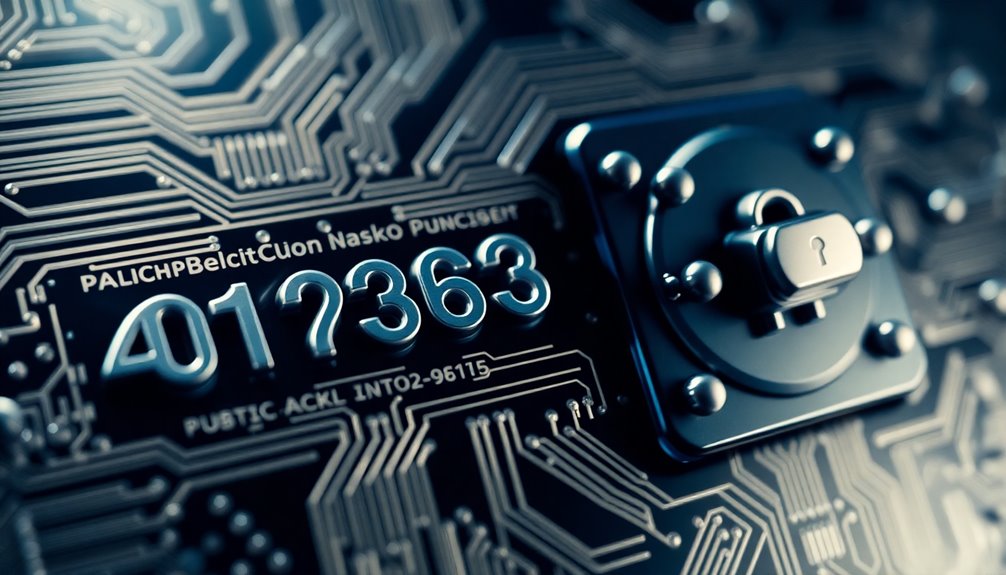
When traversing the world of cryptocurrencies, understanding the distinction between public and private keys is essential. Public keys are your address for receiving cryptocurrency. They're typically 26-35 characters long for Bitcoin and 42 characters for Ethereum, starting with "0x". You can share your public key freely, and it helps verify transactions without revealing sensitive details. Additionally, public keys are derived from the private key, which ensures a secure connection between the two. On the other hand, private keys are your secret. They're used to sign and authorize transactions, proving your ownership of a wallet. You should never share your private key, as it grants control over your assets. The relationship between public and private keys is critical, ensuring that only you can access and manage your cryptocurrency securely.
Security Vulnerabilities in Transactions
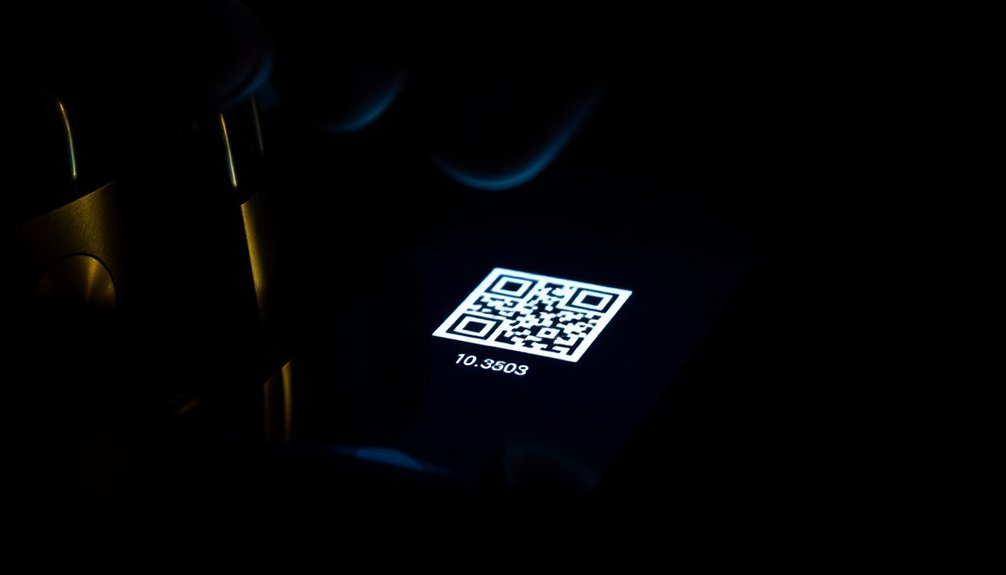
Numerous security vulnerabilities can threaten the integrity of cryptocurrency transactions. One major risk is the transaction replay attack, where an attacker tries to spend the same currency multiple times. To mitigate this, check if a UTXO has been spent and implement nonces.
Another concern is transaction malleability, allowing someone to alter a transaction's ID before it's confirmed. To counteract this, make sure you use strict DER signatures. Additionally, understanding transaction vulnerabilities can help in designing more secure systems.
Double spending is also a significant threat, so requiring multiple confirmations and implementing multi-signature wallets can help.
Finally, be aware of DDoS attacks that flood networks with false transactions. Encrypt your data transmission and monitor network traffic to protect against these threats. Always stay informed about the risks involved.
Decentralized Finance (DeFi) Growth
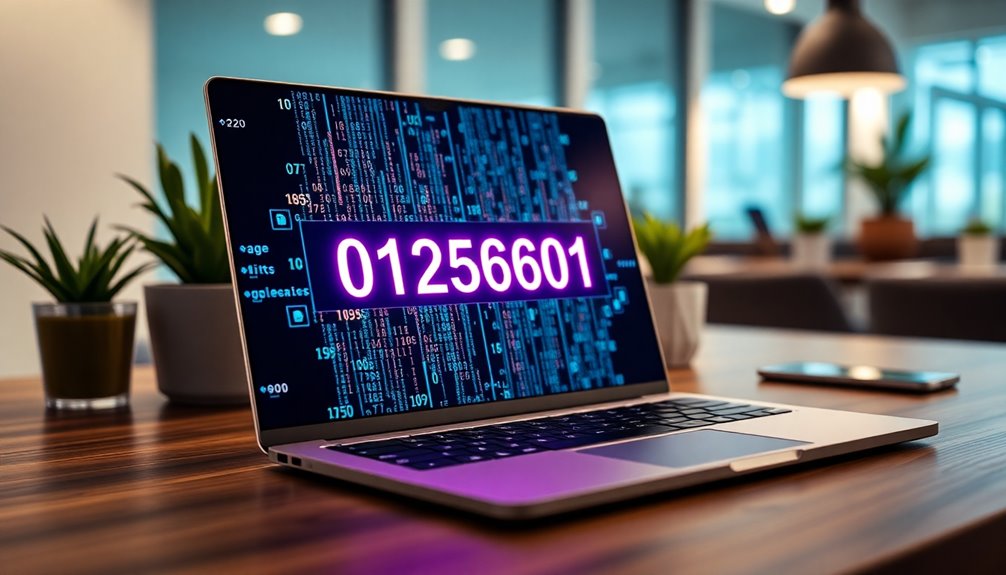
As decentralized finance (DeFi) continues to surge in popularity, its transformative potential for the financial landscape becomes increasingly evident.
The DeFi market is projected to reach USD 19.67 billion by 2024 and an astounding USD 2.55 trillion by 2037, with a compound annual growth rate of 45.4% from 2025 to 2037.
Key drivers of this growth include the adoption of blockchain technology, which holds a 39% market share, and the improved financial inclusion it offers to underbanked populations.
In fact, the estimated market size for 2025 is expected to be USD 26.81 billion, reflecting the ongoing momentum in the DeFi space.
DeFi platforms provide accessible and transparent services, eliminating traditional intermediaries and reducing costs.
As you explore DeFi, consider its wide-ranging applications in sectors like banking, retail, and media, all contributing to a more inclusive financial ecosystem.
Secure Your Private Keys
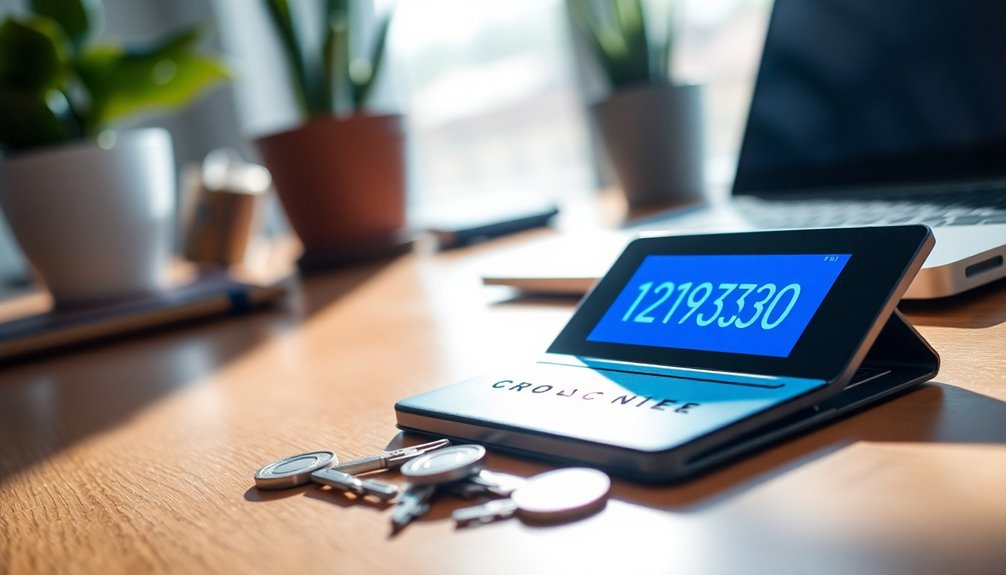
To protect your digital assets, securing your private keys is essential. Hardware wallets like Ledger and Trezor store keys offline, offering immunity against online attacks. They're user-friendly and compatible with various cryptocurrencies, ensuring ease of management. Additionally, implementing proper key management practices is crucial to avoid prolonged use of a single key, which can increase vulnerability. Alternatively, you can use paper wallets, which provide durable offline storage but require careful handling to avoid degradation. Encrypted USB drives are another option, allowing secure storage with strong encryption, but they must be kept in a safe place. Cold storage, keeping keys entirely offline, offers maximum security but requires technical expertise. No matter which method you choose, prioritizing the security of your private keys is vital for safeguarding your cryptocurrencies.
Frequently Asked Questions
Can I Change My Crypto Address After Creating It?
Yes, you can change your crypto address after creating it, depending on the wallet you use.
Many wallets allow you to generate new addresses manually or automatically for each transaction. This helps enhance your privacy, as reusing addresses can make your transactions traceable.
Always check your wallet settings to see if you can enable this feature, and make sure you verify the format of any new address before sending funds.
How Do I Find My Crypto Address?
Imagine you're standing at the crossroads of your crypto journey, and you need to find your crypto address.
You can easily do this by opening your wallet app and tapping "Receive." Choose your cryptocurrency, and voilà! Your address will appear, both in QR code and alphanumeric form.
If you're using an exchange, log in, head to "Accounts," and select your crypto account.
Just remember to double-check before sharing, ensuring your funds reach the right destination!
What Happens if I Lose My Private Key?
If you lose your private key, you'll immediately lose access to your funds, as it's essential for authorizing transactions.
Your wallet becomes inoperable, and without that key, you can't spend, withdraw, or transfer your crypto.
Unfortunately, you can't recover the key itself, and this loss is irreversible.
To prevent this, make sure you securely store your private key and consider using backup methods like seed phrases to safeguard your assets.
Are Crypto Addresses Anonymous?
Ever wonder how anonymous your crypto transactions really are?
Crypto addresses aren't fully anonymous; they're pseudonymous, linking transactions to wallet addresses instead of real identities.
Since blockchains act as public ledgers, anyone can trace transactions back to these addresses.
Reusing them can create a trail, making it easier to link you to your activity.
Plus, exchanges often require KYC, tying your identity directly to your crypto transactions.
Can I Use the Same Address for Multiple Transactions?
You can use the same address for multiple transactions, but it's not advisable.
Reusing addresses compromises your privacy, making it easier for others to track your transactions and link them to you.
It also exposes you to security risks, as all your funds tied to that address can be identified.
To enhance your privacy and security, it's best to generate a new address for each transaction, keeping your finances more discreet.
Conclusion
In the ever-evolving world of cryptocurrencies, understanding how addresses work is essential for safeguarding your assets. While many believe that crypto addresses are completely secure, vulnerabilities still exist, especially if you don't protect your private keys. As DeFi grows, the stakes get higher. So, it's not just about having a crypto address; it's about knowing how to use it safely. Stay informed and proactive to truly harness the power of digital finance without falling victim to its risks.









